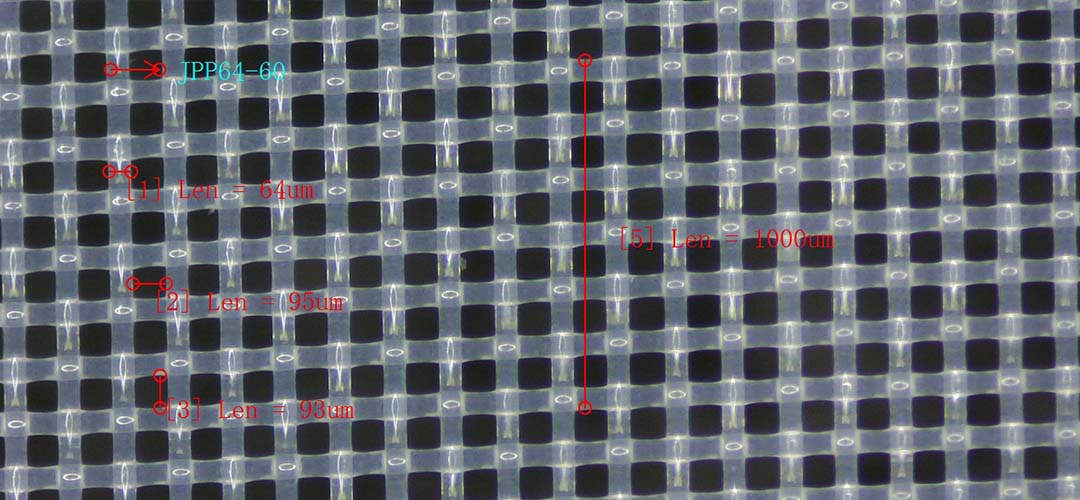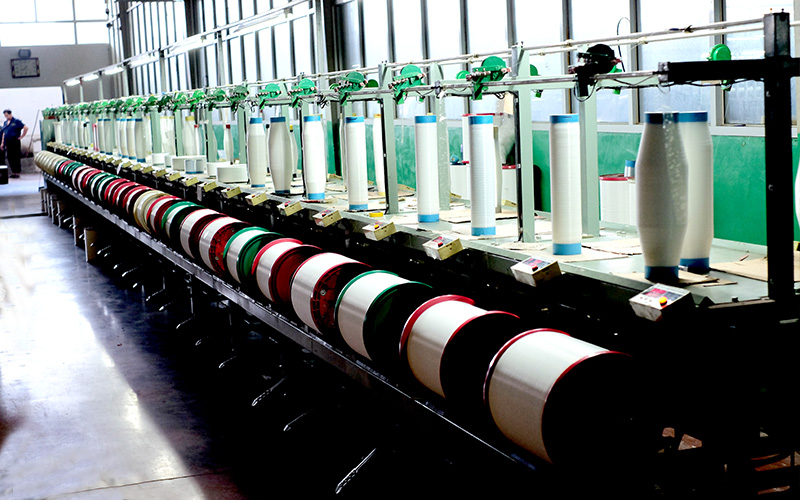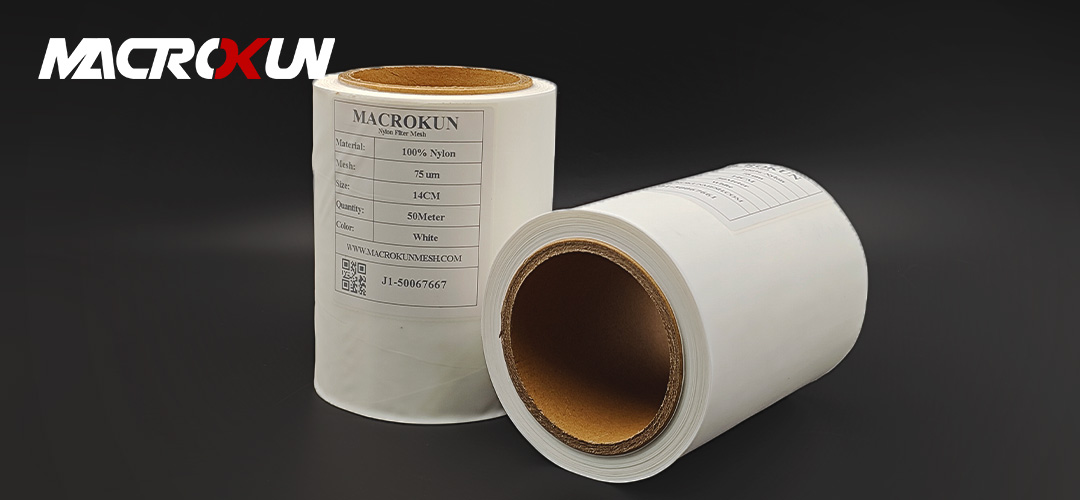Table of Contents
Applications of micron nylon filter fabric in Food and Beverage Processing
Micron nylon filter fabric has emerged as a pivotal component in the food and beverage processing industry, where the purity and quality of products are paramount. This specialized fabric, known for its fine filtration capabilities, plays a crucial role in various applications, ensuring that contaminants are effectively removed from liquids. As the industry continues to evolve, the demand for high-performance filtration solutions has increased, making micron nylon filter fabric an indispensable asset in maintaining product integrity.

One of the primary applications of micron nylon filter fabric in food processing is in the clarification of liquids. For instance, during the production of juices, wines, and other beverages, it is essential to eliminate suspended solids and impurities that can affect flavor, appearance, and shelf life. The fine mesh of micron nylon filter fabric allows for the efficient separation of these unwanted particles, resulting in a clearer and more appealing final product. This process not only enhances the visual quality but also contributes to the overall taste and consumer satisfaction.
Moreover, micron nylon filter fabric is widely utilized in the filtration of oils and fats, which are critical components in many food products. The ability of this fabric to withstand high temperatures and its chemical resistance make it ideal for filtering edible oils during extraction and refining processes. By removing impurities and particulates, manufacturers can ensure that the oils meet stringent quality standards, thereby enhancing the safety and flavor of the final products. This application is particularly important in the production of cooking oils, margarine, and other fat-based products, where clarity and purity are essential.
In addition to its role in liquid clarification and oil filtration, micron nylon filter fabric is also employed in the brewing industry. The brewing process requires precise filtration to achieve the desired flavor profile and clarity in beer. Micron nylon filter fabric is used in various stages of brewing, including wort filtration and yeast separation. By effectively removing unwanted particles and ensuring a consistent product, this fabric helps brewers maintain quality control and meet consumer expectations. Furthermore, the durability and reusability of micron nylon filter fabric make it a cost-effective solution for breweries, allowing for efficient operations without compromising on quality.

Another significant application of micron nylon filter fabric is in dairy processing. The production of milk and dairy products necessitates stringent filtration to eliminate bacteria, spores, and other contaminants that can compromise safety and quality. Micron nylon filter fabric is employed in processes such as milk clarification and cream separation, where its fine mesh effectively captures unwanted particles while allowing the desired liquid to pass through. This not only ensures compliance with health regulations but also enhances the overall quality of dairy products, making them safer for consumers.
As the food and beverage industry continues to prioritize sustainability and efficiency, the role of micron nylon filter fabric is likely to expand further. Its versatility and effectiveness in various applications make it a valuable asset for manufacturers seeking to improve their filtration processes. By investing in high-quality micron nylon filter fabric, companies can enhance product quality, ensure compliance with safety standards, and ultimately drive consumer satisfaction. In conclusion, the applications of micron nylon filter fabric in food and beverage processing are diverse and critical, underscoring its importance in an industry that demands excellence at every stage of production.
Enhancing Pharmaceutical Liquid Filtration with Micron Nylon Filter Fabric
In the pharmaceutical industry, the purity and quality of liquid products are paramount, making effective filtration systems essential. One of the most innovative solutions to emerge in this field is the use of micron nylon filter fabric, which has proven to be a game-changer in enhancing liquid filtration processes. This advanced material offers a unique combination of durability, chemical resistance, and precision, making it an ideal choice for various applications within pharmaceutical liquid processing.
The primary function of micron nylon filter fabric is to remove particulate contaminants from liquids, ensuring that the final product meets stringent regulatory standards. With its finely woven structure, this fabric can achieve micron-level filtration, effectively capturing even the smallest particles that could compromise product integrity. As a result, pharmaceutical manufacturers can rely on micron nylon filter fabric to maintain the highest levels of cleanliness in their processes, which is critical for both safety and efficacy.
Moreover, the versatility of micron nylon filter fabric allows it to be utilized in a range of applications, from pre-filtration to final filtration stages. In pre-filtration, the fabric can be employed to remove larger particles and debris, thereby extending the life of downstream filters and reducing maintenance costs. This not only enhances operational efficiency but also minimizes the risk of contamination during the production process. Transitioning to final filtration, micron nylon filter fabric ensures that any residual particles are effectively captured, providing an additional layer of protection for the end product.
In addition to its filtration capabilities, micron nylon filter fabric is also known for its excellent chemical resistance. This characteristic is particularly important in the pharmaceutical industry, where various solvents and chemicals are used during the manufacturing process. The ability of micron nylon to withstand harsh chemicals without degrading ensures that the filtration system remains effective over time, thereby reducing the need for frequent replacements and associated downtime. Consequently, manufacturers can achieve greater operational continuity and cost savings, which are critical in a highly competitive market.
Furthermore, the lightweight nature of micron nylon filter fabric contributes to its ease of handling and installation. This feature allows for quick integration into existing filtration systems, minimizing disruption to production schedules. As pharmaceutical companies strive to optimize their processes, the adaptability of micron nylon filter fabric becomes a significant advantage, enabling seamless upgrades to filtration systems without extensive modifications.
Another noteworthy aspect of micron nylon filter fabric is its ability to be customized to meet specific filtration requirements. Manufacturers can tailor the fabric’s pore size, thickness, and other properties to suit particular applications, ensuring that the filtration system is perfectly aligned with the unique needs of their processes. This level of customization not only enhances filtration efficiency but also supports compliance with regulatory standards, as companies can demonstrate that their filtration systems are designed to meet specific performance criteria.
In conclusion, the integration of micron nylon filter fabric into pharmaceutical liquid processing represents a significant advancement in filtration technology. Its ability to provide precise filtration, coupled with chemical resistance and customization options, positions it as an essential component in the quest for product purity and quality. As the pharmaceutical industry continues to evolve, the adoption of such innovative materials will undoubtedly play a crucial role in enhancing operational efficiency and ensuring compliance with ever-stringent regulatory demands. By investing in micron nylon filter fabric, pharmaceutical manufacturers can not only safeguard their products but also enhance their overall production processes, ultimately leading to improved outcomes in patient care.
The Role of Micron Nylon Filter Fabric in Wastewater Treatment Systems
Micron nylon filter fabric plays a pivotal role in wastewater treatment systems, serving as a critical component in the filtration process that ensures the effective removal of contaminants from water. As industries increasingly face stringent regulations regarding wastewater discharge, the demand for reliable filtration solutions has surged. Micron nylon filter fabric, known for its durability and efficiency, has emerged as a preferred choice for many wastewater treatment facilities.
One of the primary advantages of micron nylon filter fabric is its ability to provide precise filtration at various micron ratings. This characteristic allows facilities to tailor their filtration processes to meet specific requirements, effectively capturing particles ranging from larger solids to microscopic contaminants. By utilizing different mesh sizes, operators can optimize the removal of suspended solids, oils, and other pollutants, thereby enhancing the overall quality of treated water. This adaptability is particularly beneficial in industries such as food processing, pharmaceuticals, and chemical manufacturing, where the nature of wastewater can vary significantly.
Moreover, the chemical resistance of micron nylon filter fabric makes it suitable for a wide range of applications within wastewater treatment systems. Many industrial processes generate effluents containing aggressive chemicals that can degrade standard filtration materials. However, micron nylon is engineered to withstand harsh environments, ensuring longevity and reliability in demanding conditions. This resilience not only reduces the frequency of filter replacements but also minimizes downtime, allowing treatment facilities to maintain consistent operational efficiency.
In addition to its physical properties, micron nylon filter fabric contributes to the overall sustainability of wastewater treatment systems. By effectively removing contaminants, it plays a crucial role in the recycling and reuse of water, which is becoming increasingly important in an era of water scarcity. Facilities that implement advanced filtration systems can significantly reduce their environmental footprint by reintroducing treated water back into their processes or discharging it into natural water bodies with minimal impact. This not only helps industries comply with environmental regulations but also enhances their corporate social responsibility initiatives.
Furthermore, the integration of micron nylon filter fabric into wastewater treatment systems can lead to cost savings over time. While the initial investment in high-quality filtration materials may be higher than that of conventional options, the long-term benefits are substantial. Enhanced filtration efficiency reduces the need for additional treatment steps, thereby lowering operational costs. Additionally, the durability of micron nylon fabric translates to fewer replacements and maintenance interventions, further contributing to cost-effectiveness.
As industries continue to innovate and evolve, the role of micron nylon filter fabric in wastewater treatment systems is likely to expand. The ongoing development of advanced filtration technologies, including the incorporation of automation and real-time monitoring, will further enhance the effectiveness of these materials. By leveraging the unique properties of micron nylon, wastewater treatment facilities can not only meet regulatory requirements but also position themselves as leaders in sustainable practices.
In conclusion, micron nylon filter fabric is an indispensable asset in the realm of wastewater treatment. Its ability to provide precise filtration, withstand harsh chemicals, and contribute to sustainability makes it a vital component for industries aiming to improve their wastewater management processes. As the focus on environmental responsibility intensifies, the adoption of advanced filtration solutions like micron nylon will undoubtedly play a significant role in shaping the future of liquid processing in industrial applications.







